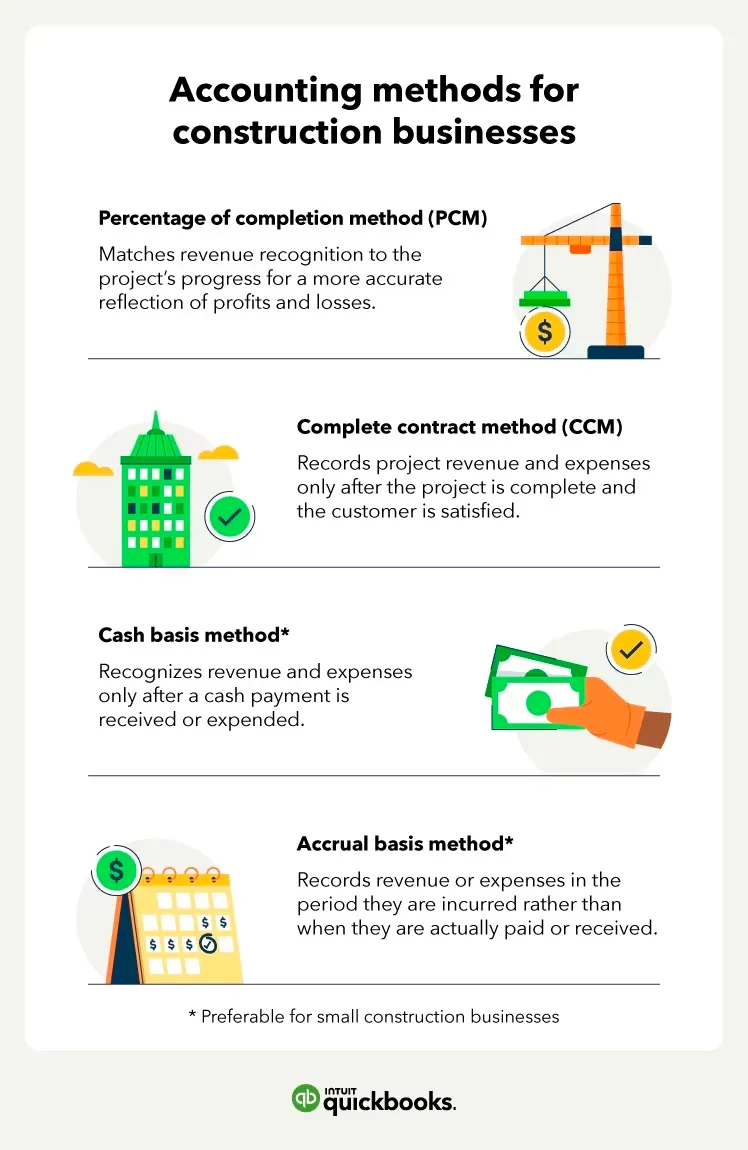Key Solutions Offered in Construction Audit to Improve Financial Oversight
In the world of building and construction accounting, essential services such as job expense evaluation, budget plan monitoring, and cash money circulation evaluation play an essential duty in boosting economic oversight. Recognizing these subtleties can significantly affect the performance of economic oversight in building and construction tasks.
Task Expense Evaluation
Efficient project cost estimation is a critical component of effective building and construction audit solutions, as it directly impacts budgeting and financial preparation (construction accounting). Exact expense quotes offer a comprehensive overview of the economic demands for a building project, enabling stakeholders to make enlightened choices concerning resource appropriation and job feasibility
A comprehensive cost estimate process encompasses numerous aspects, including labor, products, equipment, expenses, and contingencies. By analyzing historic data and existing market patterns, construction accounting professionals can establish practical quotes that reflect real project prices. This analytical strategy not only help in protecting funding however also improves transparency and responsibility among all celebrations involved.
Furthermore, precise expense estimation works as a structure for tracking and regulating expenses throughout the task's lifecycle. By establishing a clear standard, building and construction accountants can recognize discrepancies in between approximated and actual expenses, permitting timely changes and interventions.
Eventually, reliable project expense estimate not only helps with smoother task execution but likewise enhances the total financial health and wellness of building and construction businesses, ensuring they stay affordable in an increasingly dynamic market. This calculated strategy underscores the significance of knowledgeable professionals in delivering precise and trustworthy price quotes.
Spending Plan Monitoring
In the world of construction bookkeeping solutions, budget plan monitoring plays a crucial duty in ensuring that projects remain financially viable and on track. Effective budget management involves the systematic planning, surveillance, and regulating of task prices to straighten with economic goals. It begins with the development of a comprehensive budget that accurately reflects the awaited prices of labor, products, devices, and overhead based on comprehensive job price evaluation.
When the budget is established, recurring surveillance is necessary. This includes regular analyses of real expenditures against the allocated numbers, enabling for timely recognition of disparities. By carrying out tools and software customized for building accounting, task managers can generate real-time records that help with informed decision-making.
Additionally, positive spending plan administration enables stakeholders to readjust monetary allocations and sources as required, advertising flexibility in feedback to unanticipated challenges. This flexibility is vital in the construction sector, where project ranges can frequently transform. Ultimately, durable budget plan monitoring not only strengthens monetary liability however additionally improves total job performance, making certain successful conclusion within the allocated economic parameters.
Cash Money Flow Evaluation
Capital evaluation works as a critical element of building and construction bookkeeping, making it possible for project managers to keep a clear understanding of the inflow and outflow of funds throughout the task lifecycle. This logical procedure enables the identification of prospective cash lacks or excess, encouraging supervisors to make educated choices relating to budgeting and source appropriation.
By thoroughly tracking cash money inflows from customer repayments, fundings, and other income resources, along with keeping track of discharges such as labor, products, and overhead expenditures, task supervisors can develop a thorough capital estimate - construction accounting. This forecast not just help in forecasting future financial positions however also aids in recognizing fads that may influence job viability
Routine capital learn the facts here now analysis facilitates timely interventions, enabling project managers to deal with monetary obstacles prior to they rise. This proactive approach can reduce threats connected with postponed payments or unexpected expenses, ultimately bring about even more successful project completions. Furthermore, efficient capital administration adds to maintaining strong partnerships with subcontractors and suppliers by making sure prompt settlements.
Essentially, money circulation evaluation is an indispensable device in construction accountancy, driving financial stability and functional performance throughout the period of building tasks.
Regulatory Conformity Support
Governing compliance support is vital for construction firms browsing the complicated landscape of industry policies and requirements. The construction sector undergoes a myriad of neighborhood, state, and government policies, consisting of safety and security standards, labor legislations, and environmental guidelines. Non-compliance can result in considerable charges, hold-ups, and reputational damage.
A durable compliance support system assists firms stay educated about relevant policies and guarantees that they implement essential policies and treatments. This includes monitoring modifications in regulation, providing training for workers, and conducting regular audits to examine conformity degrees. Construction accounting professionals play an essential duty in this process, using competence to analyze policies and line up financial practices appropriately.
Additionally, regulatory conformity assistance incorporates the prep work and entry of called for documentation, such as tax filings and reporting for labor criteria. By establishing an aggressive compliance technique, building companies can minimize threats associated with non-compliance, improve operational effectiveness, and promote a culture of responsibility.
Eventually, effective regulatory conformity assistance not just safeguards a building firm's financial health however also strengthens its reputation in the market, placing it for lasting growth and success.

Financial Reporting and Insights
While navigating the complexities of the construction market, accurate financial coverage and insightful evaluation are vital for notified decision-making. Building and construction jobs typically involve substantial capital financial investment and fluctuating expenses, making it vital for stakeholders to have accessibility to timely and clear monetary information. Extensive financial records, consisting of revenue and loss declarations, cash money circulation projections, and balance sheets, provide a photo of a business's economic health and wellness and efficiency.
Moreover, customized understandings stemmed from this website these records assistance managers recognize fads, analyze project success, and make tactical modifications to boost operational effectiveness. Trick performance indications (KPIs) particular to construction-- such as task margins, labor costs, and overhead ratios-- use important criteria for assessing success and forecasting future performance.
Additionally, normal financial reporting enables compliance with legal responsibilities and cultivates transparency with stakeholders and capitalists. By leveraging sophisticated accounting software and data analytics, building and construction companies can improve their monetary oversight, allowing them to browse unpredictabilities more properly. Ultimately, robust economic reporting and workable understandings More about the author equip building companies to make educated decisions that promote growth and sustainability in an extremely open market.
Verdict

In the world of building accountancy, key solutions such as task price evaluation, budget plan monitoring, and cash money circulation evaluation play a critical role in enhancing monetary oversight. Ultimately, robust budget management not only bolsters economic liability yet also enhances overall job efficiency, making certain effective completion within the allocated financial parameters.
